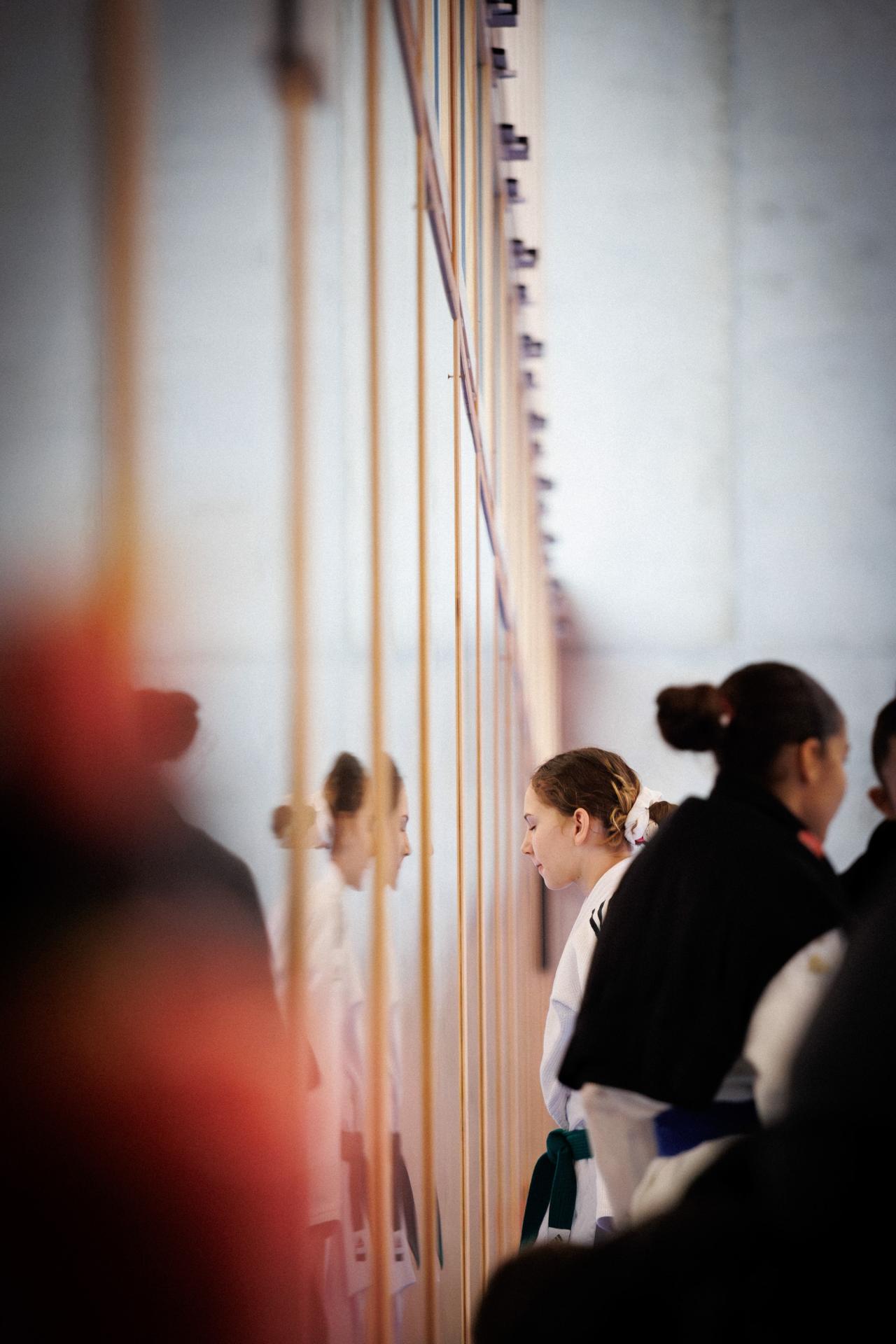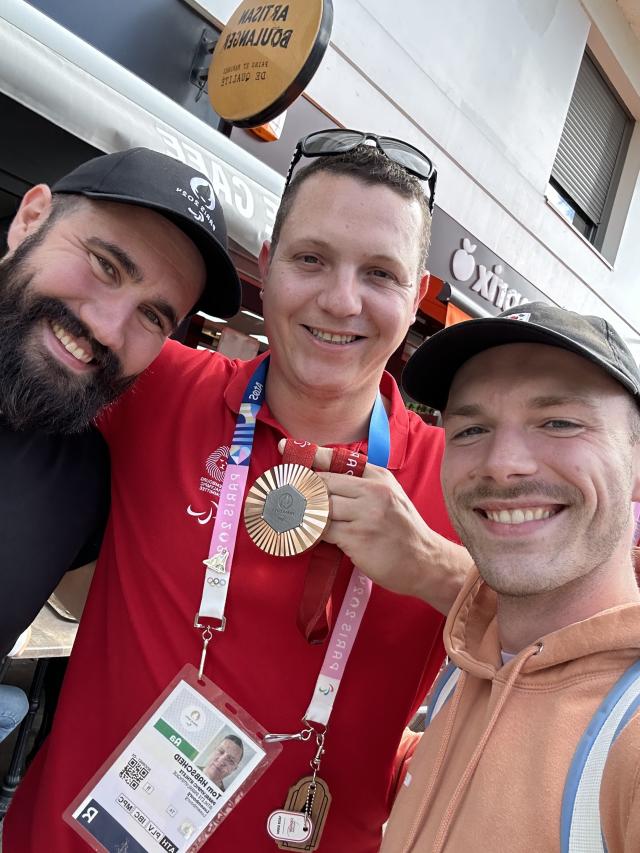
Listen to this article
Sport brings people together, they say. But is that still true in a world where performance and money take centre stage? For Misch Pautsch and Maxime Toussaint, 2024 was synonymous with D'Hoffnungsdréier – our first long-term podcast that traces the path of Luxembourg's Paralympians to Paris.
"I want to work on long-term projects…" A thought shared by many journalists. "Going into depth, accompanying people, documenting, really being there…" And when the editor-in-chief says "yes" at some point, you're left standing there like the dog that suddenly caught the car it was chasing. Now what?
Now this. Thirty hours of raw audio material that takes more than four working days just to listen to. In this time, most journalists today have to deliver not just one, but several articles. For us, however, this is just the visible part of the iceberg. Top athletes, including a medallist, politicians, researchers, even the Grand Duchess. In total, we spent more than a year and a half on the project.
A year and a half in gyms, in office buildings, on training pitches, café terraces, tracks, early in the morning and late in the evening, and at the very end: a slightly stressful weekend in Paris. A year and a half in which we were able to see how much work, sweat, time and frustration is invested in those few seconds, those few centimetres that should ultimately matter in Paris.
Should matter, and did matter. Less than a year after our very first interview with Marc Schreiner, President of the Luxembourg Paralympic Committee, Tom Habscheid, shot putter, enters the trembling Stade de France. Red lions and red, white and blue flags were waving in the audience – yes, lots of horizontal ones, too! Luxembourg – the country of underdogs and of those who are always considered too small to achieve great things – is well represented.
"Our first thought after screaming our heads off: 'Fuck, we still have to interview a minister.' Well, we can do that with a hoarse voice. After all, authenticity was one of the leitmotifs of the podcast."
And great things were achieved. Tom Habscheid brings the first Paralympic medal back to the Grand Duchy in 40 years. And our first thought after screaming our heads off for what felt like hours: "Fuck, we still have to interview a minister." Well, we can do it with a hoarse voice – it's more authentic that way. And authenticity was, after all, one of the leitmotifs of the podcast – without fireworks, without making bad things beautiful and beautiful things bad.
Showing that even the "best in the world" are normal people. That they are approachable, have doubts, remain down-to-earth. This applies to the athletes with whom we exchanged messages, even on the day of their competition. For the minister we met with a beer in his hand. But not only them… Nowadays, sport goes hand in hand with research. Here too, Luxembourg is often at the forefront, as Christophe Ley impressively demonstrates in the podcast.
This makes our first real long-term format at the Journal more than just an insight into the story behind our top Paralympic talents, but – hopefully – a source for anyone who wants to know more about para-sport in Luxembourg. What we can certainly say – and with some pride –, is that we documented a piece of Luxembourg's sporting history. And that the "How did it actually come about" research on Google will lead to a link to D'Hoffnungsdréier.









